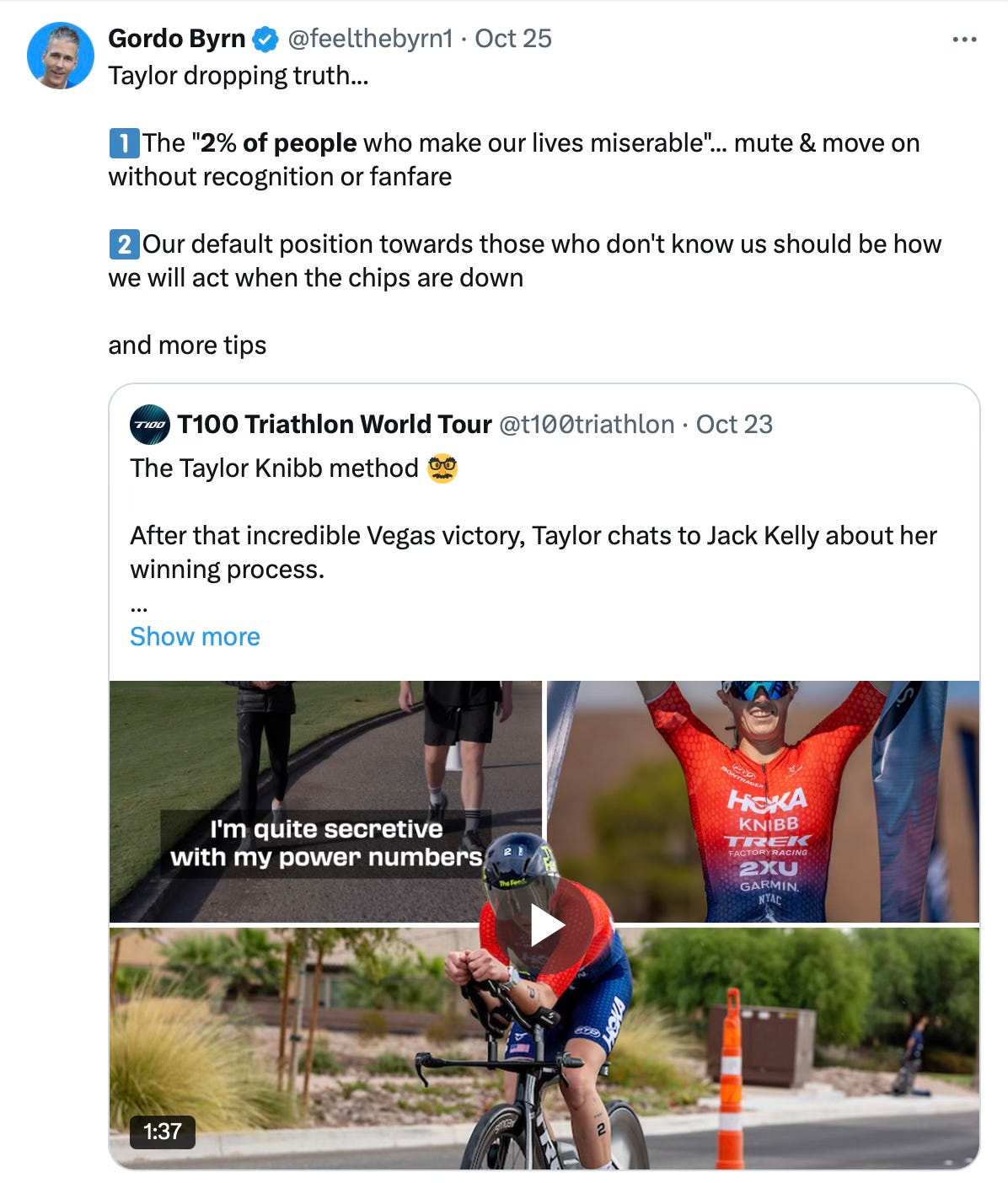
“The first principle is that you must not fool yourself—and you are the easiest person to fool.” — Richard Feynman
One of the challenges of being a coach, advisor or parent (!) is the temptation to offer an opinion about areas where we have no direct experience.
My kids do not support my attempts to avoid taking a position. They get quite upset when I refuse to “play the game.” The game being offering advice on areas where I know nothing.
That is today’s observation. Time teaches us our blindspots, the areas where we are clueless. The experience of being clueless is subtle. The easiest way to notice is being surprised.
Have you been surprised, recently? Perhaps life is giving you feedback?
Contained above are three techniques to think better:
Avoid people who offer advice on areas where they have no direct experience.
Avoid sources of prophesy.
Make a habit of applying 1 & 2.
These techniques can make me seem less fun, particularly to my kids. My kids, lacking experience, are happy to offer advice and prophesies. Prediction is hardwired into our social nature. Indeed, it takes effort to prune the predictors, anxious and clueless. Making this effort is not always easy. Many of us love prediction and having our anxiety triggered.
Have there been any recent events, with volatile predictions, that triggered your anxiety? More feedback, perhaps.
If we want a different life then we need to do things other people find too difficult.
This includes staying focused on our goals while others seek to distract us.
One of my favorite authors has a deep understanding about finance and risk. The application of his advice saved my younger self from ruin. As a result of his knowledge, and writing skill, he’s built a large following. A large following tempts us to venture into areas where we are clueless.
It’s illuminating whenever someone ventures into my area of expertise. I listen to what they have to say. What I’m listening for, “Does this person understand my domain?”1
If not then it’s a “tell” that they are willing to BS in all areas of their lives. They will tell you this if you listen carefully when they are relaxed and unscripted2.
Pay close attention to this phenomenon with anyone you let into your mind. It’s why I am careful with listening to podcasts and rarely watch videos. Reading (on paper) keeps me more objective with the material.
Being clueless myself, I rarely blame the clueless individual.
One of the challenges of getting a lot of attention (or money, or fame) is maintaining quality of thought. Humans share a tendency to lose our minds with too much attention.
When quality of thought matters then:
Limit the amount of attention from people who don’t know us.
Limit the scope of areas where we are willing to comment.
Don’t engage with the clueless.
Don’t engage?
Why not? We could make them less clueless.
…if they could only hear my point of view…
Yeah, right!
1// Has correction _ever_ worked, with someone who was getting constant reinforcement for their current views?
We hear “don’t meet your heroes” but I think it’s a good idea to meet, watch carefully and learn from our heroes.
There’s a lot we can learn from studying others. The people who go furthest off the rails have a chaotic internal life. It’s why we see them lashing out at heretics, and creating scapegoats. Lashing out is a reflection of what’s happening inside.
2// I don’t want to engage in argument. I want to learn, improve and move my life forward.
When we are bemoaning the state of the world, or pointing out how someone is wrong, we are not moving towards our goals.
By engaging, I am clouding my ability to think clearly by filling my head with conflict and wrong thinking.
When we seek external validation then engagement is a difficult habit to break. We get far more attention calling out others than making small daily steps towards large compound progress.
++
Audience capture is a risk, even when the audience is small.
If you find anxiety rising then your audience might be creating a conflict between “who you are” and where you are being pushed.
The greatest “audience” is the five people with whom we spend most of our time. Write those people down and ask…
Am I OK with becoming these people?
Then do the same thing with your online follows. When I first returned to social, I’d mute/unfollow one person each Friday. It’s similar to Taylor’s observation about the 2% of people who make our lives miserable.

3// Direct attention towards who, and what, you want to become.
Deep down, I want to be excellent. That requires me to say “no thanks” when people offer me the opportunity to distract myself.
I do not call the clueless out. Rather I use the energy… Bro, you are so wrong here… to write articles, construct threads and make videos… explaining a better approach to the people with whom I have a relationship. My people, the people who help me iterate towards better.
I started my working life in finance. One of my tasks was making lots of phone calls, asking questions and listening. We can’t help but tell the world what we really think - all we have to do is listen.




Great post - you articulated much of what I have felt and observed - especially the part about lashing out. Keep channeling your energy into your writing!
This one was great G! Specially with so much information moving around us, hard to cancel the noice and keep the focus on what matter to each of us. Thank you!